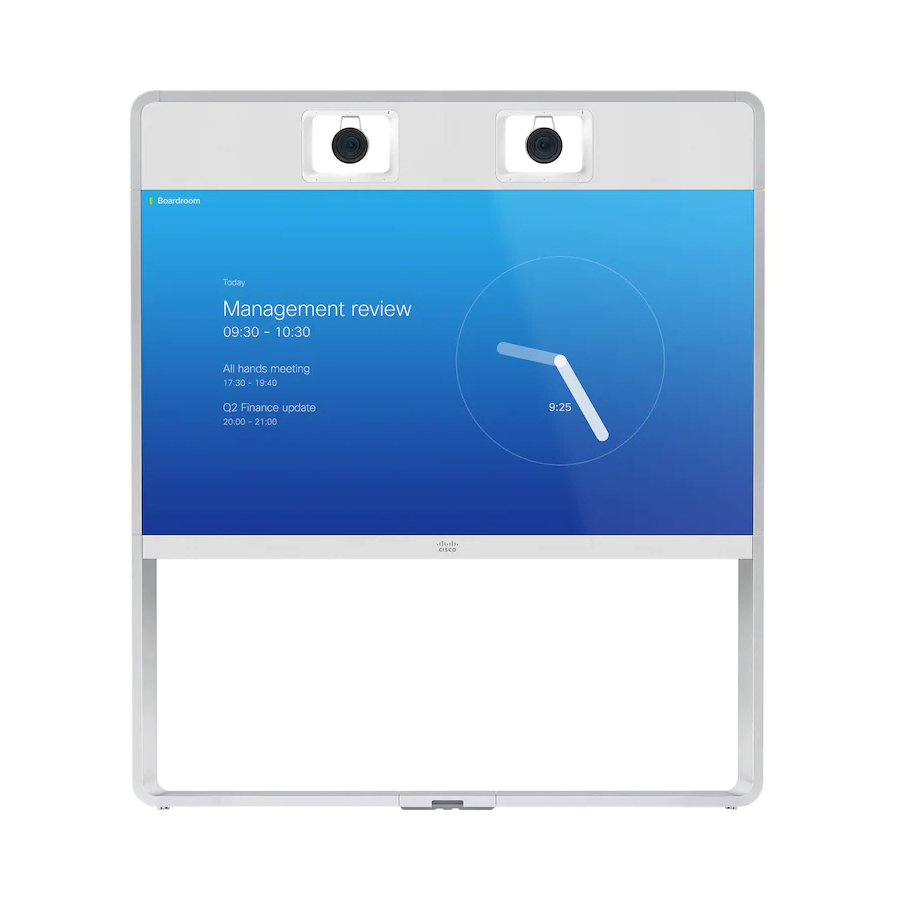Events for widget actions
Table of contents
The video system sends one or more of the following events when
someone uses the controls on the Touch 10 in-room control panel:
•
Introduction
•
Create a user interface
•
•
API for in-room control
API for in-room control
Widgets
UserInterface Extensions Event
Command reference
A single string contains information about the type of action, which widget
triggered the event (identified by the Widget ID), and the widget value.
Troubleshooting
How to register:
Tips and tricks
Example:
Examples
*e UserInterface Extensions Event Pressed Signal: "
** end
*e UserInterface Extensions Event Changed Signal: "
** end
*e UserInterface Extensions Event Released Signal: "
** end
In-Room Control on Touch 10
*e UserInterface Extensions Event Clicked Signal: "
for Cisco TelePresence
MX200 G2, MX300 G2,
** end
MX700, MX800,
SX10, SX20, SX80
Collaboration Endpoint
software version CE8.2
D15358.02 - JULY 2016
www.cisco.com
© 2016 Cisco Systems, Inc.
All rights reserved.
Pressed
- sent when a widget is first pressed
Changed
- sent when changing a widget's value
(applies to toggle buttons and sliders only)
Released
- sent when a widget is released
(also when moving away from the widget before
releasing)
Clicked
- sent when a widget is clicked
(pressed and released without moving away from the
widget)
(suited for terminal output mode)
xfeedback register event/UserInterface/Extensions/Event
Two event versions that a control system can register to: one suited for terminal output mode, the other for XML output mode
WidgetId
Value
:
"
WidgetId
Value
:
"
WidgetId
:
Value
"
WidgetId
Value
:
"
Type of action
16
These events are sent in two versions.
• UserInterface Extensions Event
• UserInterface Extensions Widget - suited for XML output mode
See the table below to find out the version best suited for your control
system to register to.
When, and by which widgets (user interface elements), these events
are triggered, are described in the
Widgets
UserInterface Extensions Widget
(suited for XML output mode)
The type of action, which widget triggered the event (identified
by the Widget ID), and the widget value are included as separate
elements in the XML tree.
How to register:
xfeedback register event/UserInterface/Extensions/Widget
Example:
<Event>
<UserInterface item="1">
<Extensions item="1">
<Widget item="1">
<Action item="1">
WidgetId
<WidgetId item="1">
<Value item="1">
Value
</Value>
Type
<Type item="1">
</Type>
</Action>
</Widget>
Type of action
</Extensions>
</UserInterface>
</Event>
- suited for terminal output mode
chapter.
</WidgetId>

